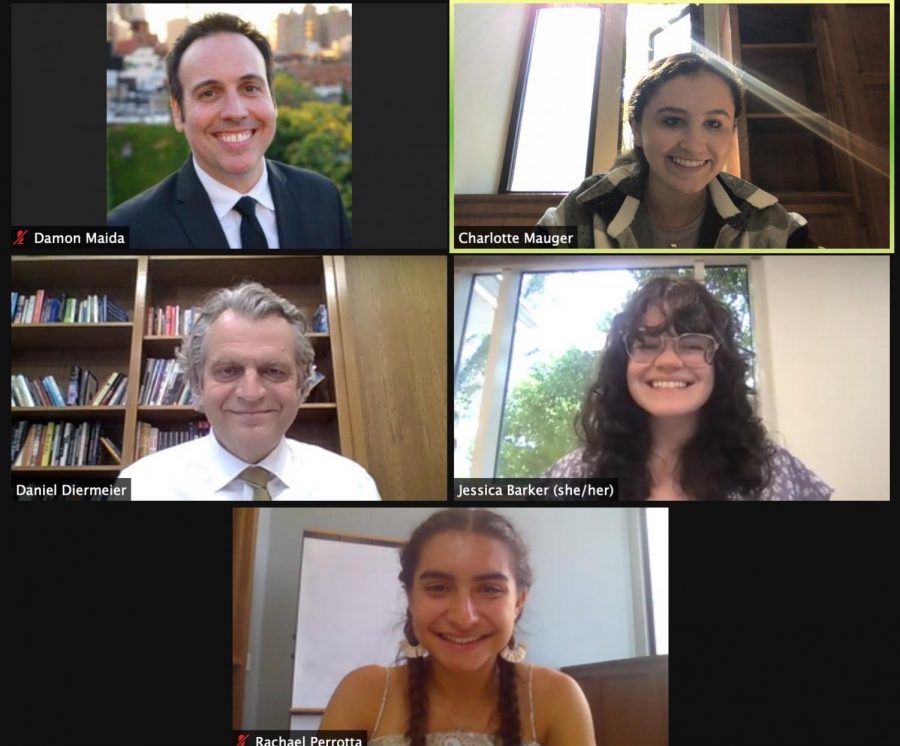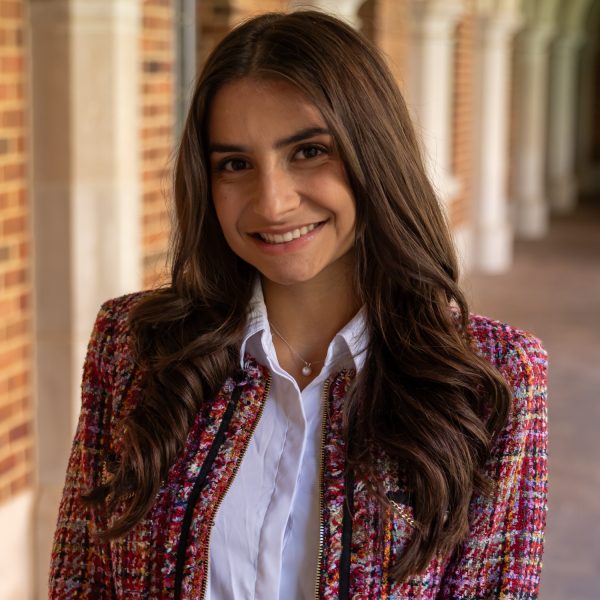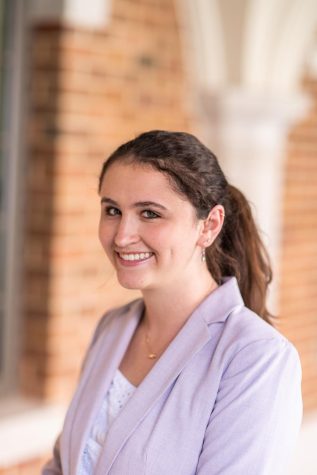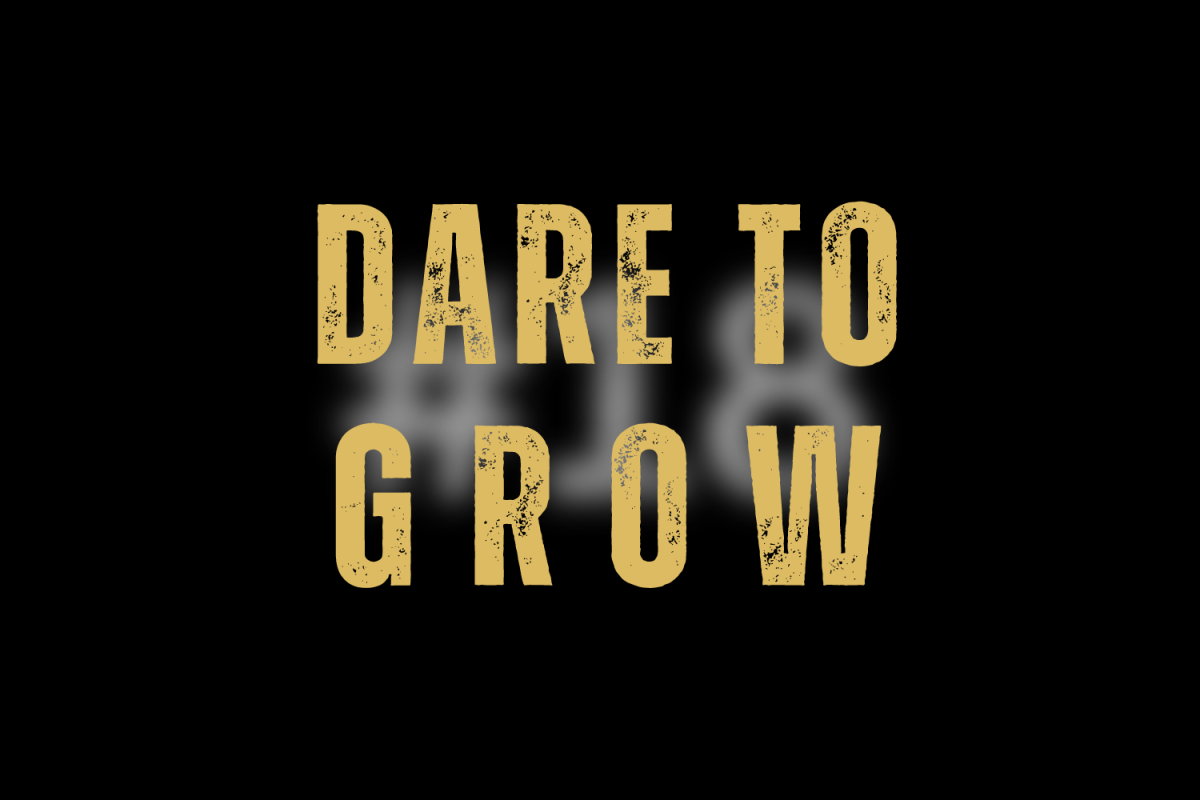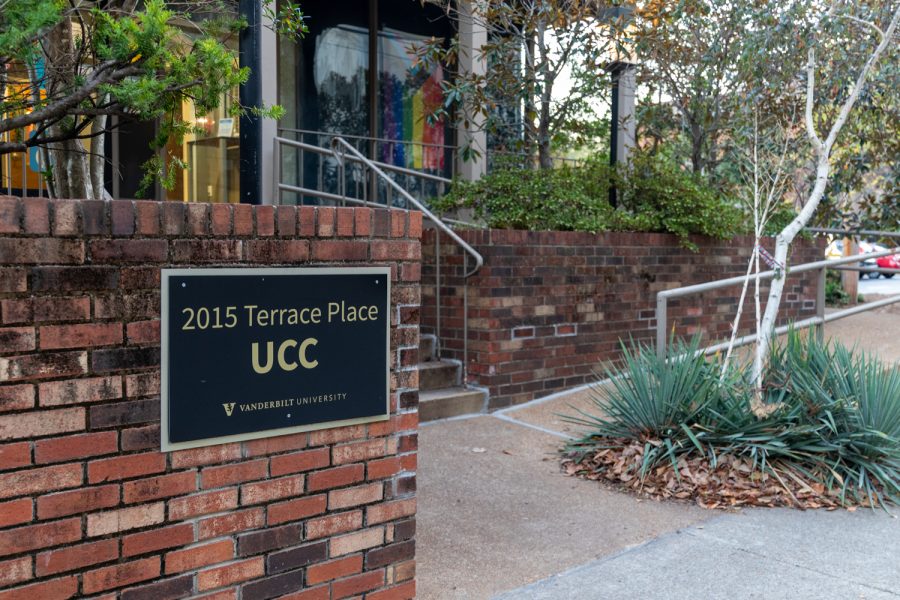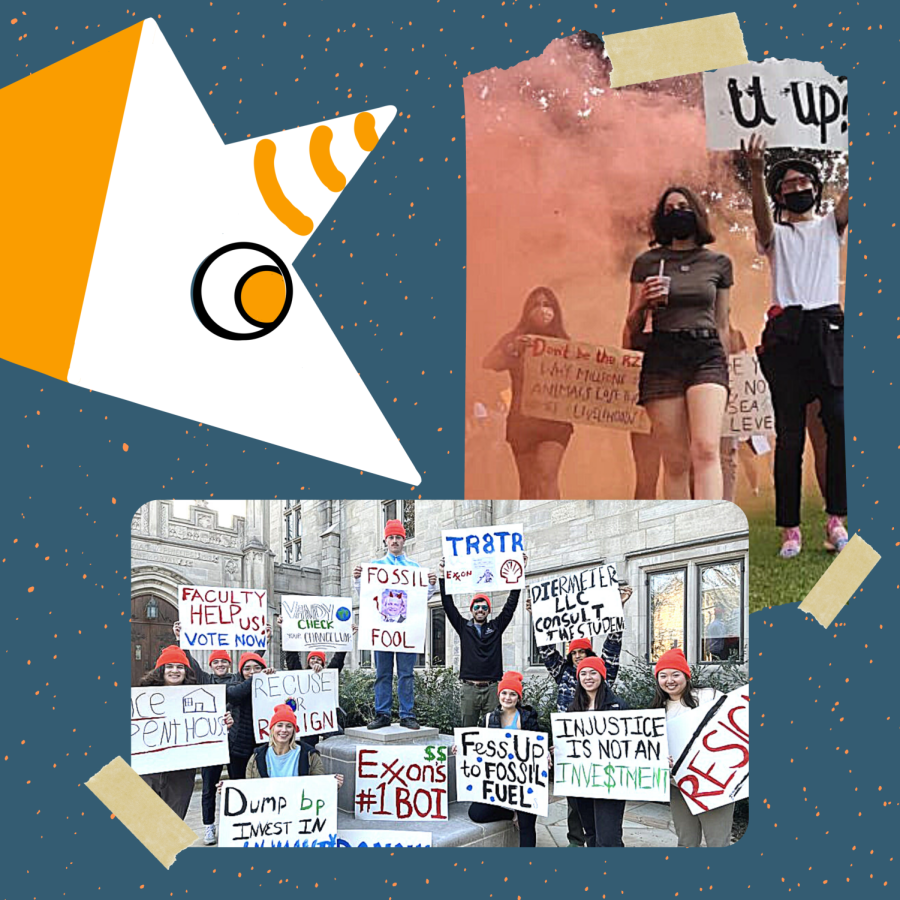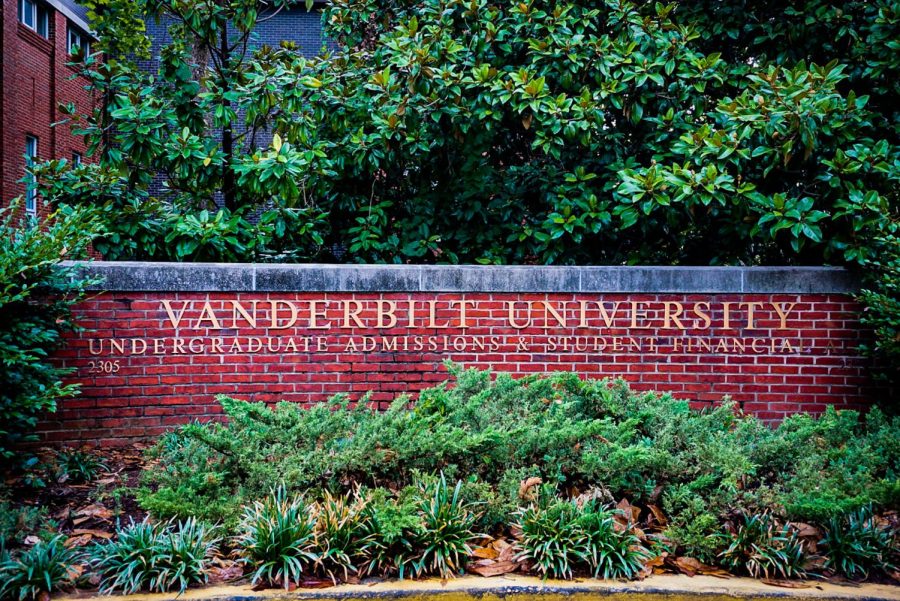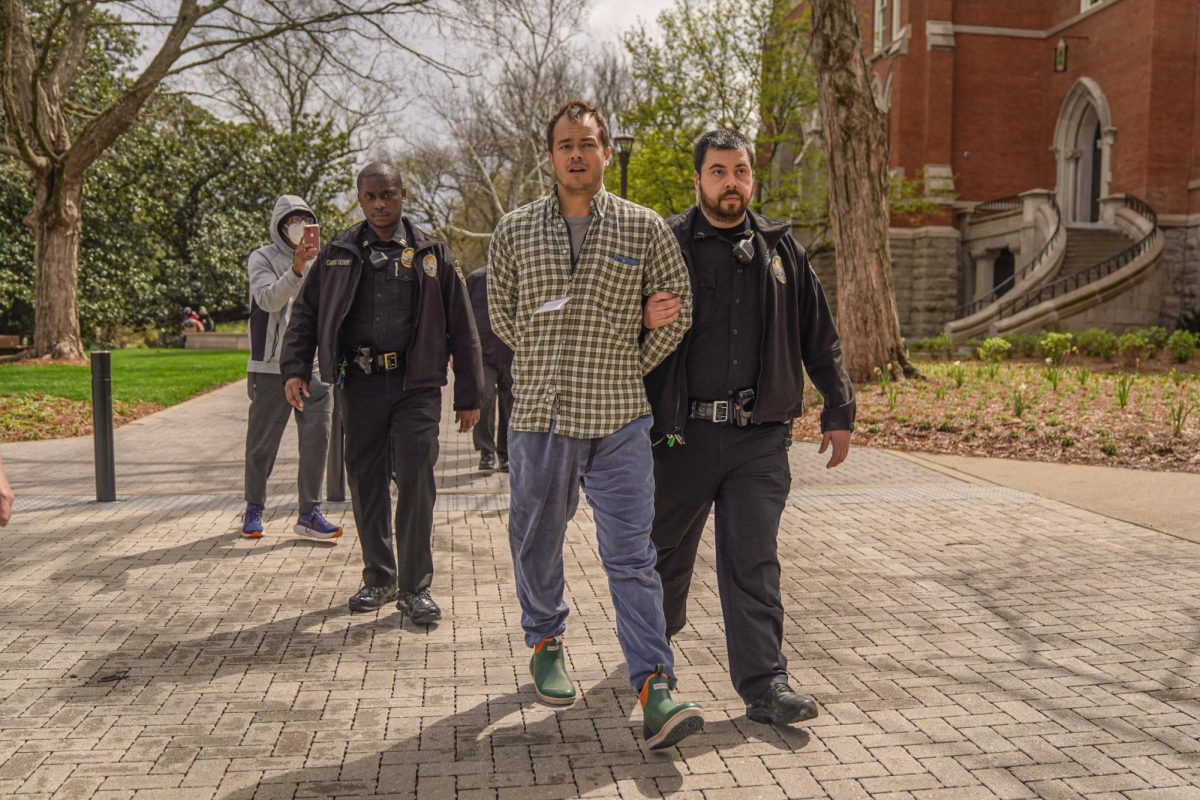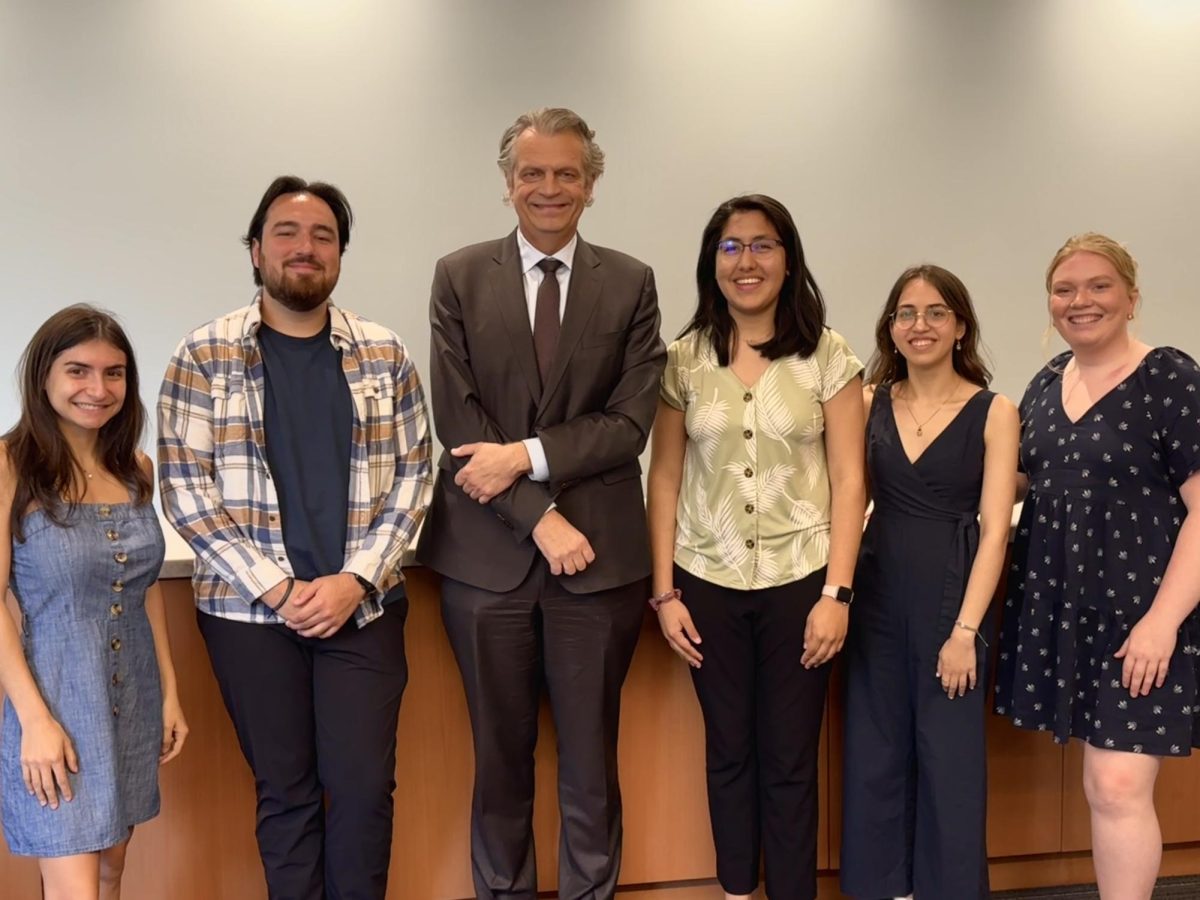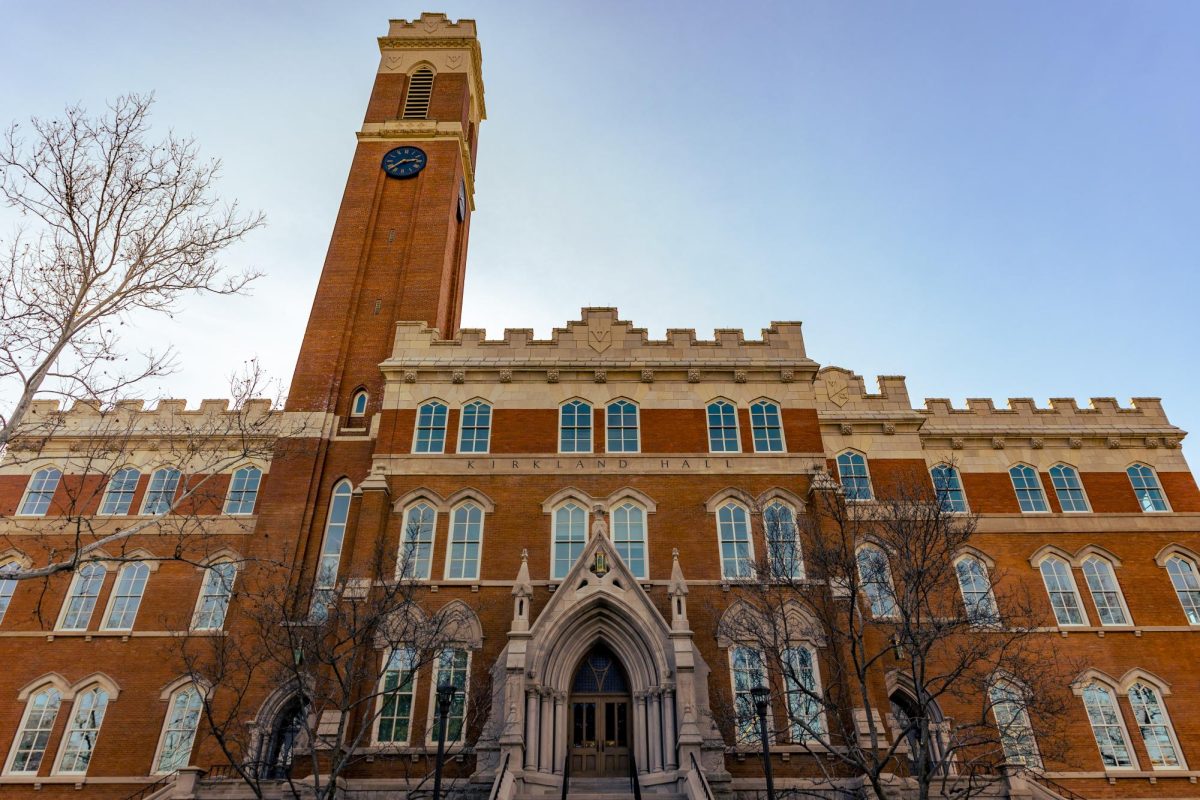Editor’s note: This piece contains mentions of sexual assault.
As he enters his second year at Vanderbilt, Chancellor Daniel Diermeier met with The Hustler at the midpoint of the semester to share how far we’ve come and how far we have left to go.
During a Sept. 29 Zoom call, Diermeier shared his views on fostering relationships with students, campus safety, divestment, how he responds to criticisms of leadership and more.
Vanderbilt Hustler: As the first semi-normal semester that you’ve been Vanderbilt’s chancellor, what have been some of the highlights for your in-person semester thus far? How do you think the community has rebounded after an online year?
Chancellor Diermeier: I think that one of the highlights has been to finally see more of all the members of our community in-person. I had a great dinner on Monday, being able to be out there, talk to people on campus and just see the energy on campus that makes Vanderbilt such a special place.
One thing that really stuck with me, I think, was my first experience with move-in day, which always is, of course, a signature moment when we kick off the new academic year. I love the sense of community; I love the fact that our students were there to welcome the new incoming students and their families. What I found particularly remarkable is that there were so many hundreds of students out there, and many of them did not have that experience when they were freshmen. I think it really speaks a lot about what type of a place Vanderbilt is, and how much we are a community that creates a sense of belonging, of welcoming and working together towards making this university great.
What have been some of the biggest challenges or lessons that you’ve learned throughout this past year?
I’m very proud of what we accomplished. I think that one of the things that we learned last year is that, if we work together as a community, we can move mountains and it really took the entire community to do that. It took faculty, staff, students—everybody had to do their part.
I also learned that we can operate at a kind of higher level of metabolism; we can make decisions more quickly and more agile and are comfortable making these decisions more quickly.
The third thing—perhaps the most important one to me—is that we can absolutely charter on course, so we can’t pay attention to what other universities are doing. But, we can do it our own way, based on our context, our own culture and on the circumstances that we’re facing as a community and do it proudly. I think this was an important lesson and something that I want to take with us as we go to the new academic year.
As we’re moving out of these COVID-19-characterized couple of semesters into more normal experiences, there was a university-hosted Town Hall on Sept. 13 which discussed the uptake of COVID-19 cases at the beginning of the semester. This spark was described as being “expected and manageable.” For the rest of the semester, what are the “expected and manageable” COVID-19 cases? How will the university’s policies change if those predictions aren’t correct? Or if they are?
We basically have adopted a very similar approach that we had last year, which is that everything we’re going to do has a mission. That means we want to make sure that our faculty can do their work, and that our students have the transformative education that Vanderbilt is known for. We are going to do that as well as we can in the context of the changing reality, as well as our changing understanding of public health aspects.
We have learned, of course, that while vaccines are not perfect protection against COVID-19, they provide a tremendous amount of protection. Our positivity rates on campus are much, much, much lower than those in our community and we have indicators that we have mild cases. The approach that we have been taking and responding to the ebbs and flows and the changes is very similar. It’s based on the best science of the day and it’s adaptive. What that means is that we will make those decisions depending on all the facts on the ground change.
We certainly expected that there would be more cases when the undergraduates came back to campus—that was natural. It’s not just in a number of cases, it’s also their hotspots or their clusters. Do we see severe cases? Harvard Business School, for example, I think yesterday or two days ago, decided to go totally online because they had a cluster within Harvard.
There are multiple factors that our operations team—which has done such a terrific job—will take into consideration in order to move around and to pivot. We’re going to make the judgments that we always do, as we did last year. Remember, we went from once-a-week testing to twice-a-week; now we have the sentinel testing program, which we think is a good idea. It’s data-driven and science-driven. It’s mission-focused, but it also is very agile and adaptive. We’ll adjust as new information becomes available to us.
Regarding a different type of safety, the Vanderbilt community recently has received six notices of sexual assault from VUPD. What do you think is causing this spark compared to last year, and what is Vanderbilt doing to amend and combat it?
Sexual assault and misconduct are not tolerated in any way. We are concerned about any case that we have, and we’re committed to working together to prevent and eliminate all forms of sexual misconduct or harassment, and—most importantly—to ensure a safe and welcoming environment for our students. This requires everybody to be involved, we’re looking at these cases and specifically trying to figure out whether there is anything more systematic that we need to look at above the surface. This is something we take very seriously. Whenever we have cases like that, whether it’s one case or two or three, we look into that in detail and then try to address the underlying root causes.
What do you suggest students do for support and safety during this time of the increased cases?
It’s important that if you are concerned about some specific aspects of sexual assault, to reach out to the University Counseling Center or other resources, of course, including Project Safe, which has a 24-hour crisis and support line. These are trusted resources. If students are concerned about some specific aspects, I would strongly encourage them to reach out to these university resources.
Switching gears a little bit, as the year started, The Hustler became aware of staff shortages and different needs happening in Campus Dining. We’ve also heard of student complaints regarding the quality of dining, especially as the Workers Union enters contract negotiations. How does Vanderbilt plan to balance dining workers’ rights and the needs of campus dining along with student concerns?
I can’t say enough about our dining workers and staff members who really have stepped up dramatically during these challenging times—and not just during these last few weeks, but also during the entire pandemic. I actually visited five locations yesterday to thank them in person, because I’m just amazed by what they’re doing.
We are talking with our workers, but also with our students, faculty and staff on how we can continue to improve our services and we’re committed to doing that. We had a really challenging start to the semester, but our people have really stepped up and I think we’re already turning the corner.
What is your reaction to other top universities, such as Harvard University and Boston University, recently divesting from fossil fuels? Harvard’s President Lawrence Bacow said in an email to the university that their decision comes with the knowledge that climate change is the “most consequential threat facing humanity.” How do these universities’ decisions affect Vanderbilt’s trajectory of doing the same?
Every university makes their own decision based on their priorities, their values and their culture. What we have said from the very beginning is that, at Vanderbilt, the purpose of the endowment is to support our students and faculty—the endowment is not an advocacy tool and we’ve made that clear and communicated that repeatedly and explicitly.
A good question is why are we taking that stance? The reason we are taking that stance is that, number one, if we’re not maximizing the returns on our endowment, we can’t support our students and our faculty at the level that we can do that right now. That’s number one, but there’s another reason that I think is just as important. Universities are places where our students and our faculty should feel free to pursue and engage in the exploration of important and controversial policy areas. What exactly the right policy response to climate change is—that’s a hotly contested area that people have all sorts of different points of view on and it’s our responsibility to create a platform where our faculty or students can do that and can engage in those debates. It’s not our job to prescribe a particular policy as saying that this is the right one to kind of create a party line.
So, for example, some people think that divesting from fossil fuel companies is a very good idea. Other people think it’s that you actually want to be a shareholder of these companies to use the shareholder processes—for example, shareholder resolutions—to have these companies change their behavior, but not withhold investments from them. Yet, others say that this is the role of the government and not of private entities and that we should have something like a carbon tax. These are all good questions and these are all important discussions to have.
Our job is to create an environment where faculty and students can have [these discussions] rather than prescribing a particular solution. That’s why we have always maintained that the university should have, on issues of policy, a stance of principle neutrality because our job is to create an environment where faculty and students can engage in these debates in a way that allows them to argue for their positions, even forcefully so. But, it’s not the job of the university to tell our faculty or students what they have to think.
On the same topic of promoting a great learning environment at Vanderbilt, is Vanderbilt’s administration taking strides to improve its ranking in the U.S News Best universities list, potentially with the goal of breaking the top 10 in the future? If so, what are these efforts? Where do you think there’s the biggest room for improvement?
We’re glad that we are well recognized in various rankings—that’s nice to see. Rankings are not perfect measures of the quality of universities; they have their pros and cons. Our goal at Vanderbilt is to make sure that we improve according to the values that we cherish. We have continued to invest in students and in faculty, and we’ll continue to do so. Our goal is really to do the best thing that we can for Vanderbilt and we believe strongly that, when we do that, the rankings will follow.
What other initiatives is the university planning for both this current academic year and in years to come to help Vanderbilt go from “great to iconic,” as you talked about during the Dean’s Dinner on Monday, Sept. 25?
I think that, first and foremost, it’s important that we continue to keep our community safe and healthy as we navigate the pandemic. That’s, of course, priority number one, but we want to do it in a way where we can foster and advance our mission. That means providing a transformative education for students, and an environment for faculty where they can do their best work. So, we will continue to invest in resources that support our students. We will certainly continue to advance our investment in student resources and educational resources; we want to continue with our plan to roll out the residential colleges.
You may have heard that last year we had an initiative called Destination Vanderbilt to attract the very best faculty to Vanderbilt and we did it during a time when other universities kind of dialed back—we doubled down. So, that’s what we’re going to do—we’re going to continue to invest in our faculty and our students.
We also want to increase our relationship with our community. Just yesterday, we announced a new partnership between Peabody and Metro Public Schools to help improve educational outcomes in the Metro Public School system here in Nashville. We want to create opportunities for our students and our faculty to be more deeply engaged with the community. We think that’s good for the university, and it’s good for Nashville.
As the person with perhaps the most wide-ranging view of the university, how would you suggest that students maximize their four years here, both academically and socially? If you could give your 18-year-old self advice on how to navigate college, what would that be?
I think that is a great question. And, we talked about this, you know, during the [Dean’s] Dinner on Monday. What a great university does is provide an enormous amount of opportunity for students. The most important thing is to be all in, to be really taking advantage of these opportunities.
It’s natural when you’re 18 or 19 and you come to a place like Vanderbilt, that you may not be totally sure about where your path is—some students may be totally sure, others may still want to experiment. They may want to take a different direction and explore different fields. I think it’s very important to do that.
It’s very important to explore when students are undergraduates; that’s a time in life when you want to find your path. It’s good to take risks; you want to adhere to your values, but you want to explore and learn things and connect with areas of research or activities outside of the classroom that you haven’t done before. It’s a tremendous opportunity for growth, and so I would encourage you to take full advantage of that.
How has your experience as an immigrant to the United States influenced your leadership style, personal goals and initiatives for the university? What advice do you have for international students who may be experiencing the same challenges or opportunities that you did when you came to the United States?
That’s a great question. As you know, I came to the United States from Germany. I was on a fellowship from the German government. I literally arrived with two suitcases and $1,000 at LAX airport.
There were two aspects, I think, where my personal story really informs my approach to higher education, maybe three things. The first thing is that higher education is one of the most amazing things; it’s a noble purpose to work at a university. The impact that university can have on people’s lives is profound and transformative and it’s a great honor to be part of that. With all the challenges day-to-day, one should never forget that second dimension, which is more personal to me. I’m a first-generation student, so nobody in my family graduated from college and nobody went to high school. I know very, very well how challenging it can be to find your way in a new environment—in a university environment—when you have nobody at home to talk to because they don’t have any experience with that. So, access to higher education—access to Vanderbilt—is an enormous priority to me. I’m very proud of our work and Opportunity Vanderbilt.
But, that’s not the only thing. It’s not only about financial areas, it’s also about other barriers, even sometimes not thinking that Vanderbilt could be a place for you. So, providing opportunity and access will continue to be a top priority for me.
Then, the third thing also comes back to your aspect about international students. We benefit from having diverse experience backgrounds and perspectives on campus, and our international students for sure play an important role in creating this diverse environment. But, we have to really be mindful of creating a culture of belonging for all our students. It’s natural for students—for everybody, not just for our students—to interact and connect with people that are like them. That’s just human nature. It takes effort and intention to reach out to students that they’re not like.
In the past, we have talked about you potentially teaching classes here at Vanderbilt. Do you have any updates about whether you want to do that, what you would teach or how else you plan to foster relationships with students, especially student leaders, Chancellor Scholars and Cornelius Vanderbilt Scholars?
Yes, the more communication and the more talking and the more meeting students the better. This is now an opportunity for me to be more out and about, given where we are after this strange COVID year.
I already had mentioned that I had my first [Dean’s] Dinner on Monday, and I want to do more of that. I want to have more connections, including with students that have leadership roles of various kinds in the university.
I think that, this year, I’m not going to teach a class. I want to make sure that we get through this COVID thing as well as we can, which is just an added set of challenges.
What are your thoughts on the football team’s performance so far? Has Clark Lea’s leadership and results reached your expectations? If not, what do you think could be done to improve the team’s success?
Athletic Director Candice Lee and I were excited to have Clark back at Vanderbilt to help us usher in a new era of Vanderbilt Athletics. It’s gonna take time. And, it’s very important that we build this program from the ground up, the right way. That means having the right values and with the right expectations. I’m very impressed with what Coach Lea has been doing there. But, it’s gonna take some time, and there’s going to be setbacks for sure. I think this is something where it is important for us to have the right culture to set the right expectation, then, to have the right people in place to advance what we want to do in athletics and, in this particular case, football.
You also need to put in the right resources. You may recall that, in March, we announced a $300 million athletics investment campaign called Vandy United. We’ll use those funds for facilities and operational upgrades. It is important to me that this initiative signals our commitment to athletics; Vanderbilt Athletics is an integral part of this university. It’s a proud part of it. It’s as much part of the university as the Law School or any other academic department. So, we want to make sure that we are investing in it at the level that’s appropriate in order to advance Vanderbilt Athletics. Vanderbilt has a particular point of view on athletics. Our student-athletes are really integral parts of the Vanderbilt community and we are very proud that we’re preparing our student-athletes not just for the next four years, but for life.
We have a lot of extremely successful alums that were student-athletes, some of them became professional players, but others chose other careers and have been successful throughout their lives, I think due to their experiences as student-athletes. We’re proud of that record, but we also need to do more. And, it’s that commitment and that point of view that inspires us to work hard and to work together.
The book A Year Like No Other: How a Global Pandemic Led to Vanderbilt University’s Proudest Moment by Ryan Underwood was recently published, discussing how Vanderbilt has made it through the COVID-19 pandemic. Some people who have read this book or have looked at Vanderbilt’s culture and response to COVID-19 have criticisms about Vanderbilt’s leadership style and initiatives. What do you have to say to those who have criticized the administration? How do you approach critics?
Criticism is good, that’s how we get better, particularly for a university where we have a culture of shared governance and where we have an environment where we want people to develop their own point of view on a variety of different things—whether it’s faculty or students. The important thing to me is that we never forget to be part of one community and that we engage in criticism in a way that’s civil and respectful. That means, when you go into a discussion, you want to provide arguments, you don’t want to just provide slogans. These arguments need to stand up to scrutiny and you need to be able and willing to be convinced by the other side. You need to also have an expectation that the participants of conversations all have a common commitment to get to the truth and to have their positions and point of view guided by evidence and data.
It’s perfectly fine that we don’t always agree on everything. But, it’s important to me that we never forget that we are one community and we are one community that treats others with civility and respect. That’s crucial and I’m totally committed to that. I want every member of our community to be committed in the same way.
Rapid-fire: What are you dressing up as for Halloween this year?
Oh my God, I haven’t dressed up for Halloween in ages. I think the last time I dressed up for Halloween was when my kids were really small. They were like five or six and we had a Harry Potter theme. So, I think I think I dressed up as Professor Snape—that was my last Halloween costume that I can remember.
Which is your favorite Harry Potter book?
Ooh, that’s a good question. My favorite Harry Potter book is probably number three. I love the complicated time travel stuff—I think it was one of the best parts—and I also thought the film was great.
You said you have dressed up as Professor Snape. Does that mean you are in Slytherin or what house are you?
I think, in that case, I should dress up as Dumbledore since I don’t think he has a house.
Dumbledore was a Gryffindor!
Now that’s problematic to me—I think that the Headmaster should not be in any house.
As you probably are aware, Nashville’s food staple is hot chicken. What is your go-to spice level for chicken when you eat at a place like Hattie B’s or Prince’s?
I think medium is just fine by me. That’s my sense. Nothing in excess.
What is an item on your bucket list?
Crossing the Sahara. The whole thing.
Answers have been edited for length and clarity.











